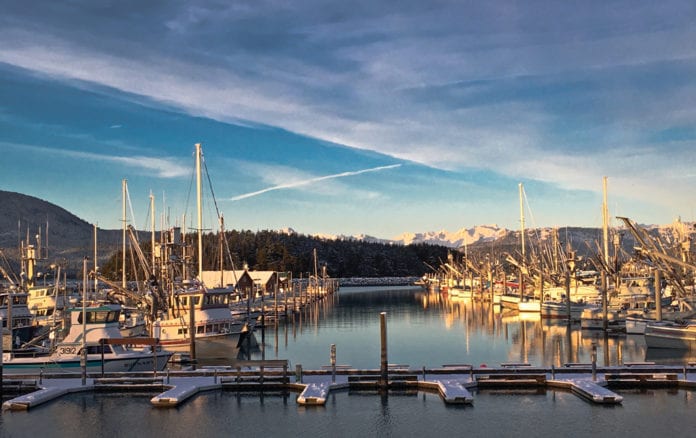
A state shared fisheries business tax program stands to put $39,559.49 into municipal coffers this year, a boost from the $20,000 budgeted for 2017, says Cordova City Clerk Susan Bourgeois.
The payout, via the Alaska Department of Commerce, Community and Economic Development, returns to Cordova, Valdez and Whittier equal shares of half of the fisheries business taxes collected from fish processors operating inside municipal boundaries.
While Cordova officials spent considerable time several years ago talking with officials in Valdez, Whittier and the state about a possible alternative distribution method, in the end all three communities decided that the three-way split was the best method, Bourgeois said.
Conflict could arise if Cordova were to attempt to allocate the Fisheries Management Area 15 funding for Prince William Sound in a method other than the customary three way split, she said.
“In an attempt to remain neighborly, we should abandon further research and attempts to gain a larger share than the customary one-third, Bourgeois advised, in a Feb. 6 memo to the Cordova City Council. She noted that the council has approved annually a resolution allowing for the three way split.
Cordova Mayor Clay Koplin said that council was expected to approve such a resolution again on Feb. 15.
The DCCED’s Shared Fisheries Business Tax Program was created in 1990, to help municipalities impacted by the effects of the rapidly expanding offshore fish processing industry.
A previously existing fish tax sharing program, commonly referred to as the raw fish tax program and administered by the Department of Revenue, shares back to municipalities half of the state fisheries business tax collected from fish processors operating inside municipal boundaries. The program extends tax sharing to include a sharing of fish taxes collected outside of municipal boundaries, primarily from floating processors.
Communities are required to file applications to receive the monies. The FY17 Shared Fisheries application forms are normally mailed out on Nov. 15 of each year, and due back by Feb. 15. This year they weren’t mailed out to communities until the end of January, with a deadline to return completed by March 17.
The Valdez City Council passed a resolution on Feb. 7 in favor of continuing the three-way split of fish tax revenues between Cordova, Valdez and Whittier, said City of Valdez PIO Allie Ferko, the city’s public information officer.
The Valdez resolution said in part “that this allocation method fairly represents the distribution of significant effects of fisheries business activity in FMA 15: Prince William Sound. The City Council of the City of Valdez, Alaska, by this resolution, certifies that the following alternate allocation method fairly represents the distribution of significant effects during 2015 of fisheries business activity in Fisheries Management Area 15: Prince William Sound: All municipalities receive an equal share of the allocation.”
Koplin noted that Cordova must file a new application annually for its share of the fish taxes.
“ We can split it equally among the three communities, or fill out a long form to get a different amount, but the three-way split is favorable to everyone. If we filed the long form and did it differently, well, Valdez has the largest population, they’d receive the largest allocation. Cordova has the biggest fishery and we’d receive a smaller allocation; and Whittier would lose out. “Valdez is okay with the three-way split. We’re facing tough economic times and there’s more to be gained by our communities working together,” Koplin said. “All of our communities have worked together on this and other projects in the past, and will continue to do so. When our PWS communities get together, our voice is stronger.”
Officials in the city clerk’s office at the City of Whittier were contacted Feb. 14, but were not available prior to press time to comment on this issue.














